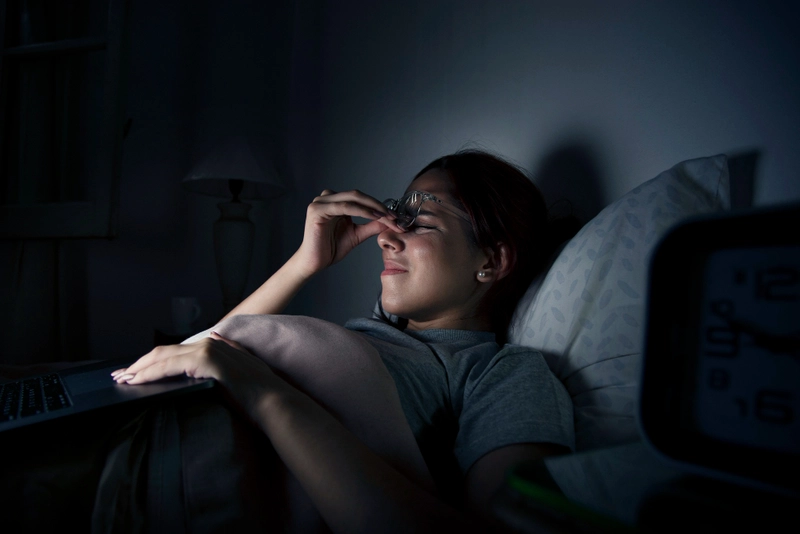- Published on: Jul 10, 2022
- 2 minute read
- By: Second Medic Expert
Understanding Hemoglobin A1C (HbA1c) Test from Experts
The hemoglobin A1C (HbA1c) test is a blood test that provides information about your average blood sugar level over the past 3 months. The higher your HbA1c level, the more sugar has been sticking to your red blood cells, which indicates that you have diabetes or prediabetes.
The American Diabetes Association (ADA) recommends that all adults aged 45 years and older be screened for diabetes every 3 years. The ADA also recommends that adults aged 20–45 years with one or more risk factors for type 2 diabetes be screened every 3 years. Risk factors for type 2 diabetes include being overweight or obese, having a family history of diabetes, being inactive, feeling stressed out all the time,
Hemoglobin A1C (HbA1c) is a blood test that provides information about your average blood sugar level for the past 3 months.
The HbA1c test is used to diagnose diabetes and prediabetes, to monitor blood sugar control in people with diabetes, and to screen for diabetes in people who do not have symptoms. The test can also be used to monitor the effects of treatment for diabetes.
Normal levels are between 4 and 5.6% of hemoglobin.
The HbA1c test is a blood test used to measure a person's average blood sugar level over the past 2 to 3 months. The higher the HbA1c level, the greater the risk of developing diabetes and other health problems.
The main use of the HbA1c test is in diagnosing diabetes, as it can show if blood sugar levels are too high over time. The test can also help gauge how well a person's diabetes treatment plan is working.
The hemoglobin A1C (HbA1c) test is a blood test that measures the percentage of glycated hemoglobin in your blood.
Glycated hemoglobin is formed when glucose (sugar) sticks to the hemoglobin molecule in your red blood cells. The higher your blood sugar levels are, the more glycated hemoglobin will be formed.
The HbA1c test can be used to monitor your blood sugar control over time. A result of 6% or less indicates good control, while a result of 7% or more indicates poor control.
Endocrinologist 4
Hemoglobin A1C (HbA1c) is a blood test that provides information about your average blood sugar level over the past 2-3 months. It measures the percentage of glycated hemoglobin in your blood. Hemoglobin is a protein in red blood cells that carries oxygen to the body's tissues. Glycation is a chemical reaction that occurs when glucose (sugar) binds to hemoglobin.
The higher your HbA1c level, the higher your average blood sugar has been over the past few months. An HbA1c level of 6.5% or higher on two separate tests means you have diabetes. An HbA1c level of 5.7% -
The Hemoglobin A1C (HbA1c) Test is a blood test that measures the percentage of glycated hemoglobin in your blood. It's used to determine how well your diabetes is controlled over time.
If your HbA1c level is 7% or higher, it means that you have uncontrolled diabetes. If it's less than 7%, it means that you have controlled diabetes. The test can also be used to diagnose diabetes, because a diagnosis of diabetes is made when an HbA1c level of 6.5% or higher is found.
Endocrinologist
Hemoglobin A1C (HbA1c) is a blood test that shows the average amount of sugar (glucose) in your blood over the past 2 to 3 months
The HbA1c test is used to diagnose type 2 diabetes and prediabetes, and to monitor diabetes treatment. The American Diabetes Association (ADA) recommends that people with diabetes have an HbA1c test at least twice a year.
Endocrinologist 6
The hemoglobin A1C (HbA1c) test is a blood test used to screen for and diagnose diabetes and prediabetes. The HbA1c test measures the percentage of glycated hemoglobin in the blood. Hemoglobin is a protein found in red blood cells that carries oxygen from the lungs to other parts of the body. Glucose, a type of sugar, attaches to hemoglobin to form glycated hemoglobin. The higher the level of glycated hemoglobin, the higher the level of glucose in the blood.
The HbA1C test can be used to:
Screen for diabetes and prediabetes
Diagnose diabetes
Monitor blood sugar control in people
Endocrinologist
The HbA1c test is a blood test that measures your average blood sugar level over the past 2-3 months. This test is used to diagnose type 2 diabetes and prediabetes, and to monitor blood sugar levels in people with diabetes.
Higher than normal levels of hemoglobin A1c indicates that you have diabetes or prediabetes. Levels of 6.5% or higher indicate diabetes, while levels between 5.7% and 6.4% indicate prediabetes. Normal levels are below 5.6%.
Our Services
Request A Callback
Recent Posts
Insomnia in Teens and How to Manage It
Jul 01,2025
Silent Symptoms of Cervical Cancer Women Ignore
Jun 27,2025
Seasonal Flu vs Covid-19: 2025 Comparison
Jun 25,2025
Joint Pain in Rainy Weather – What Doctors Say
Jun 24,2025










